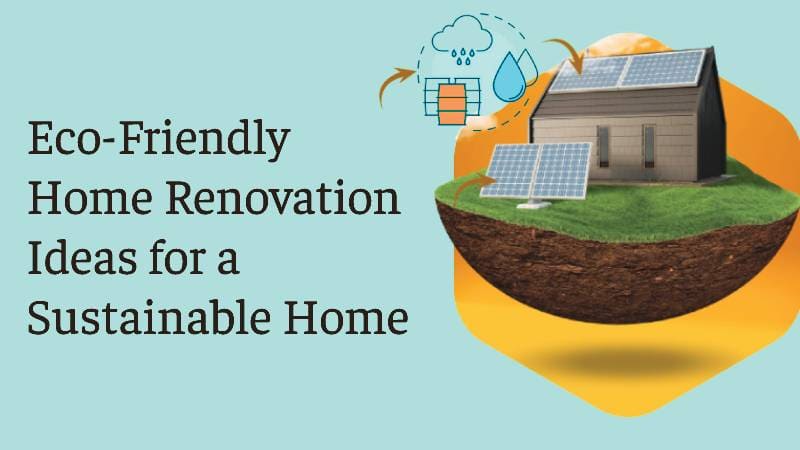Special Offers




Special Offers




01-Mar-2023 | Green Home

Eco-friendly homes are designed to minimise their impact on the environment and promote sustainability. By using renewable resources, minimising waste, and reducing energy consumption, eco-friendly homes (Green Home) can help to reduce greenhouse gas emissions and preserve natural resources. The importance of eco-friendly homes lies in their ability to create a more sustainable future for our planet. Moreover, to reduce the carbon footprint and help protect the environment, renovating our homes to make them more sustainable and eco-friendly is a great way to contribute toward a sustainable future.
Installing energy-efficient windows can significantly reduce your home's energy consumption by preventing heat loss during the winter and keeping your home cooler in the summer. Energy-efficient windows are made with advanced glazing technologies that help to reduce heat transfer and can also reduce noise pollution.
Proper insulation helps to regulate the temperature in your home, making it more comfortable and energy-efficient. One of the most common insulation techniques is use of reflective paint or reflective tiles on the roof, which do not cost much and keep the house cool by reflecting the scorching heat of the sun during peak summers.
When renovating your home, consider using eco-friendly flooring materials like bamboo, cork, or reclaimed wood. These materials are sustainable, durable, and renewable, making them an excellent choice for environmentally conscious homeowners.
Low-flow fixtures like showerheads and faucets can significantly reduce your home's water usage and save you money on your water bill. These fixtures use less water but still provide adequate water pressure and flow.
Conventional paints contain harmful chemicals that can pollute the air and harm your health. Eco-friendly paints are made with natural ingredients and are free from toxic chemicals like volatile organic compounds (VOCs). You can use these paints for your walls, ceilings, and other surfaces.
Solar panels can generate renewable energy and help you reduce your dependence on the grid. You can install solar panels on your roof or in your backyard, and they can provide power for your home and reduce your energy bills.
When renovating your home, consider using reclaimed materials like bricks, wood, and tiles. These materials are durable, have character, and add a unique aesthetic to your home. Reclaimed materials also reduce the amount of waste that goes into landfills.
A rainwater harvesting system collects rainwater from your roof and stores it for later use. You can use this water for watering your plants, flushing toilets, and other non-potable uses. This system can reduce your water bills and conserve water resources.
Energy-efficient lighting like LED bulbs can significantly reduce your home's energy consumption and save you money on your energy bills. LED bulbs use less energy and last longer than traditional incandescent bulbs.
Installing recycling and compost bins is a great way to promote sustainable living in your home. By installing recycling and compost bins in your home, you can help reduce the amount of waste that goes to the landfill and promote a more sustainable lifestyle.
Sustainable homes aim to reduce this impact by using energy-efficient materials, renewable energy sources, and smart building designs to reduce energy consumption and greenhouse gas emissions. Thus, renovating your home to make it more sustainable and eco-friendly can be a great way to reduce your carbon footprint and help protect the environment. Also, sustainable homes can be more cost-effective in the long run, as energy-efficient features can reduce energy bills and maintenance costs over time. These 10 eco-friendly home renovation ideas can help you create a sustainable home that is comfortable, healthy, and environmentally friendly.